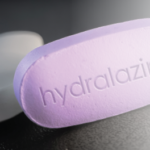Q: What led the committee to recommend rituximab over cyclophosphamide for initial disease and for relapse? That’s my preference, but I know some people still prefer cyclophosphamide, especially with severe DAH, neurologic involvement and acute renal failure. Are there any cases where there was some disagreement about it or where you personally would still favor cyclophosphamide?
Dr. Chung: I’ll start off by saying that all of these recommendations are conditional. That means while the majority would prefer one intervention, the alternate intervention is still a reasonable consideration. A number of factors led to a conditional recommendation for rituximab over cyclophosphamide for remission induction in severe GPA or MPA.
First, I think we all recognize the toxicities of cyclophosphamide. Although we use a lot less cyclophosphamide now than we did in the past, there is still the potential for toxicity, which can have a significant impact on patients’ future fertility and malignancy risks.
Second, we had a panel of patients as part of our guideline development process, and they also expressed a preference for rituximab. I have a preference for rituximab in my clinical practice, too, because it’s a better tolerated medication when it comes to side effects, such as gastrointestinal upset and bone marrow toxicity.
We did discuss using cyclophosphamide for specific indications. As you said, some individuals are strong believers in cyclophosphamide for rapidly progressive glomerulonephritis or alveolar hemorrhage. Unfortunately, we just don’t have strong data from the clinical trials, at least, to say one intervention is better than another in those particular situations. I think decisions to use cyclophosphamide for alveolar hemorrhage and other conditions are more driven by clinical experience than by clinical trial data.
Are there certain situations where I would use cyclophosphamide over rituximab? Certainly. For example, if someone hasn’t responded to rituximab in the past, you should use cyclophosphamide first. And if I have a patient with vasculitis who has unusual manifestations—pachymeningitis, for example—I tend to reach for cyclophosphamide first because we have more experience with cyclophosphamide than we do with rituximab.
Q: What about the idea that cyclophosphamide works more quickly?
Dr. Chung: That’s an idea that’s been tossed around quite a bit. I don’t think there are good data showing rituximab has a far more delayed onset of action. As you probably know, two randomized trials have looked at rituximab vs. cyclophosphamide for severe GPA and MPA. RAVE is the one that gets talked about most because it was the larger study.5 But the second study, RITUXVAS, actually included two doses of intravenous cyclophosphamide in the rituximab group because there was concern about a delay in onset of action with rituximab.6 It was thought that including a small amount of cyclophosphamide in the beginning would prevent or ameliorate the effects of this delayed onset of action.


